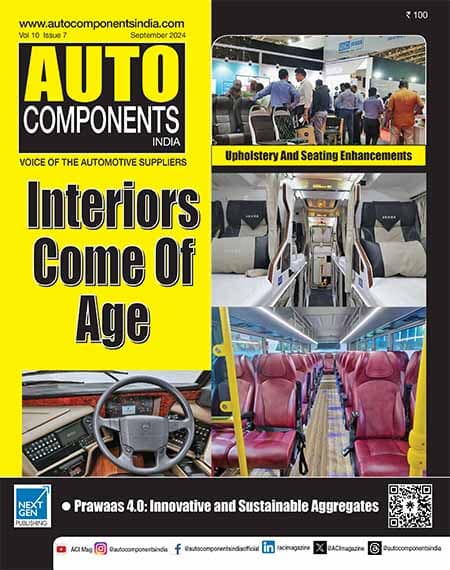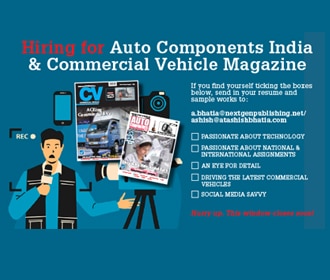Manav Kapur shares his thoughts on how technology is transforming the auto industry
The automobile industry has been undergoing major transformations fueled by fast-paced technological advancements, changing customer behavior, and disruptions caused by the recent pandemic. With the increasing penetration of autonomous driving, cloud computing, electric vehicles, machine learning, blockchain, networking, etc., industry players are chalking out new and robust business plans to stay relevant amidst the transition. Further, the worldwide technological revolution in supply chain and logistics during the pandemic has compelled the automobile sector to adopt new strategies backed by technological innovations.

Technology has opened a plethora of opportunities for the automobile industry to lure customers with the rising number of electric vehicles on the roads, virtual showrooms, lucrative financing options and other advanced features. Since the customer behavior is also changing, manufacturers and suppliers are now more inclined towards integrating technology into all operational aspects – be it product design, production, sales or marketing. From autonomous driving to virtual purchase, let’s explore some of the popular technological trends that have been revolutionizing the automobile industry.
Virtual showrooms
One of the major impacts of the pandemic has been the restrictions on physical movement and even while the restrictions are almost entirely eased, customers still prefer to buy everything online, even cars. This prompted auto retailers to reach out to their customers virtually. The virtual showrooms have been a major application of technology in the auto industry as it unburdens infrastructural and overhead costs; enable retailers to offer competitive prices and lucrative deals. Through the virtual showrooms, customers can browse cars online, take virtual car tours, complete paperwork online and get the car delivered at their doorstep through secured payment channels.
Wireless technology
While the normal car generally contains over 100 million codes and 30,000 parts, technological advancement is further increasing the numbers to navigate properly. It is expected that the inclusion of 5G technology will be a game-changer in this context as people will be able to exchange information including traffic and weather updates, road conditions, etc., while on road.
Electric vehicles
While technology is transforming the auto industry unprecedentedly, there has also been a renewed focus on sustainability, de-carbonization and net-zero emission targets, and auto makers are gradually venturing into the electric vehicles. The sale of the electric vehicles has almost doubled in the last six months. In February 2022, sale of the electric two wheelers has surged to a staggering 32,449 units from just 6,083 units same time last year. The Indian EV market is projected to grow to Rs 50,000 crore by 2025 and the government is aiming at making 30 per cent of the vehicles on road either hybrid or electric by 2030. The government has also introduced several incentives and schemes to encourage the sale of EVs and is also considering including EVs in the Reserve Bank of India (RBI)’s priority-sector lending (PSL). This has encouraged several automakers to make substantial investments towards electrification of vehicles.
Autopilot
While completely self-driven car is yet to be prevalent in the market commercially, the application of cutting-edge technologies like artificial intelligence, machine learning and neural networks might soon make possible the commercial availability of advanced driver-assistance systems (ADAS) and semi-autonomous cars. However, there are major issues like pricing, safety issues, consumer understanding, and insufficient regulatory base, which might delay the popularity of the autopilot cars on the roads.
Automotive cybersecurity
The advancement of technology in the automobile industry has made cyber safety and security one of the key priorities to focus on to avoid malfunctions or attacks. Cyber-security is being explored for more advancement across multiple segments to safeguard the automotives from malicious attacks, unauthorized access and unwanted manipulations. With the auto OEMs and their supply chains adding hardware and software for better cyber defenses, cyber-security will play a key role in transforming the automotive industry.
In a nutshell
While the pandemic had several adverse impacts globally, one positive outcome of it has been the escalated focus on technology. In the automobile industry too, to combat the pandemic disruption, and changing customer demand, the industry players have been focused on building a more innovative and technologically-advanced business model. The auto industry can further reach newer heights by leveraging modern-age technology and stepping up its transformation efforts to address customer needs and the changing times.













